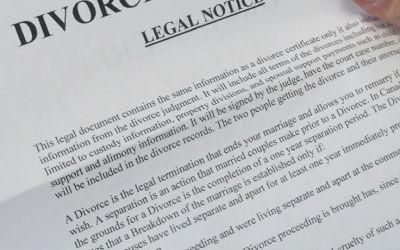Sharia Marriage Rules in the UAE: Essential Updates and Requirements for 2025
Table of Contents ▼
Are you fully prepared for your Sharia marriage in 2025? Here’s everything you need to know to avoid delays.
If you’re planning to marry under Sharia marriage rules in the UAE, it’s crucial to stay updated on the latest changes. Recent updates to these rules in 2025 have altered key requirements, documentation, and procedures for Muslim couples. Failing to adhere to these updated rules could result in delays and frustration during the marriage process.
This blog provides a comprehensive guide to the most recent updates in Sharia marriage rules and the essential steps you need to take to ensure a smooth and legally binding marriage in the UAE.
Understanding Sharia Marriage Rules in the UAE
The UAE has a dual legal system, where Sharia marriage rules govern personal matters such as marriage, divorce, inheritance, and child custody for Muslims. When you marry under Sharia marriage rules, you are entering into both a religious and legal contract.
These rules ensure that the marriage is recognized under Islamic law and the legal framework of the UAE, giving it spiritual and legal significance. If you’re marrying in the UAE, following these rules is essential to ensuring that your union is officially recognized and fully protected by law.
Key Requirements for Sharia Marriage in 2025
Essential Documents You’ll Need
To marry under Sharia marriage rules, both parties must submit specific documents to ensure the marriage is recognized legally. The required documents vary slightly depending on whether you are a UAE national or an expat:
For UAE Nationals:
- Emirates ID
- Family Book (Khulasat al-Qaid)
- Medical fitness certificate
- Pre-marital screening certificate
- No-objection certificate from the family court (if previously married)
For Expat Muslims:
- Valid passport with UAE residence visa
- Attested birth certificate
- Certificate of no impediment to marriage from home country
- Medical fitness certificate
- Pre-marital counseling certificate
- Salary certificate or employment letter
Age and Consent Requirements
Under Sharia marriage rules in the UAE, both parties must be at least 18 years old to marry legally. However, court approval may be sought for exceptions in certain cases, particularly when one or both parties are underage but seeking marriage for specific reasons.
Mental capacity and free consent are vital to ensuring that both parties understand the significance of the contract they are entering into. Additionally, parental consent is generally required for first-time brides under 25, highlighting the importance of family involvement in the process.
Recent Updates to UAE Sharia Marriage Laws
2025 Legislative Changes
In 2025, the UAE introduced several key changes to Sharia marriage rules to make the marriage process more efficient, transparent, and aligned with modern needs while maintaining adherence to Islamic law. Some of the most notable updates include:
- Expanded pre-marital counseling: The counseling now covers not only emotional readiness but also practical topics such as financial planning, family planning, and conflict resolution, aimed at reducing divorce rates.
- Updated documentation requirements: The paperwork process has been simplified, with a focus on streamlining the steps and making it easier for couples to prepare all necessary documents.
- Greater protection for spouses: The legal system now provides more explicit protections for both spouses, with enhanced rights in case of divorce, inheritance, and other matters.
These changes are designed to ensure couples are better prepared for married life and to improve the overall marriage experience under Sharia marriage rules.
Digital Integration and Processing
The UAE has also moved toward digitalizing the marriage process. In 2025, couples can now submit documents, book appointments, and track their marriage application status online. This shift to digital platforms makes the process more efficient and allows couples to stay informed every step of the way.
The Marriage Contract Process
Nikah Ceremony Requirements
The Nikah ceremony is the religious aspect of marriage under Sharia law. To complete the Nikah, the following conditions must be met:
- Presence of two male witnesses, or one male and two female witnesses
- Recitation of marriage contract terms in Arabic
- Agreement on mahr (dower) amount
- Signatures from both parties and witnesses
The mahr is a key part of the marriage contract and symbolizes the husband’s financial commitment to the wife. The agreed-upon amount can be immediate or deferred, and the terms must be clearly stated before the ceremony.
Court Registration
Once the Nikah ceremony is completed, the marriage must be registered with the local Sharia court within 30 days. This registration makes the marriage legally recognized in the UAE.
After the court verifies the documents and confirms the ceremony details, it will issue an official marriage certificate. This certificate is important for legal matters like visa applications, property purchases, and child registration.
Financial Obligations and Rights
Understanding Mahr and Financial Responsibilities
In Sharia marriage rules, mahr is a fundamental part of the marriage contract. It represents the financial commitment from the husband to the wife, ensuring her security. Mahr can be paid either immediately or deferred to a later time, depending on the couple’s agreement.
Husbands are also responsible for nafaqah (maintenance), which includes providing housing, food, and medical care for the wife. These financial obligations are enforceable by law, ensuring that both parties’ rights are respected throughout the marriage.
Property and Asset Considerations
Under Sharia marriage rules, property ownership remains separate during the marriage. Each spouse retains ownership of the property they brought into the marriage and those acquired individually during the marriage. However, gifts between spouses and jointly acquired property are subject to Islamic guidelines.
Understanding these rules helps prevent future disputes and ensures both parties are clear about their financial rights and responsibilities.
Rights and Obligations Under UAE Sharia Marriage Rules
Spousal Rights and Responsibilities
Marriage under Sharia marriage rules creates a series of mutual rights and responsibilities. Husbands are responsible for providing financial support, including maintenance, housing, and medical care. Wives are entitled to respect, financial support, and personal autonomy, all within the framework of Islamic law.
Both spouses share responsibility for child-rearing, making family decisions, and maintaining the marital relationship. The UAE courts enforce these rights, stepping in to protect individuals when necessary.
Child Custody and Parental Rights
Sharia marriage rules govern child custody in the UAE. The courts consider various factors, including age and emotional well-being, when making custody decisions. Recent updates emphasize the best interests of the child, ensuring that the stability, education, and emotional health of the child are considered in custody cases.
Special Circumstances and Considerations
Interfaith Marriage Considerations
Under Sharia marriage rules, Muslim men are allowed to marry women from other Abrahamic faiths, such as Christians and Jews. However, these marriages require additional documentation and follow specific legal procedures.
For Muslim women, marriage to a non-Muslim man is only allowed if the husband converts to Islam before the marriage can proceed under Sharia law.
Second Marriage Procedures
Polygamy is allowed under Islamic law in the UAE, but it is subject to strict conditions. The husband must prove his financial ability to support multiple wives and ensure equal treatment for each wife. The courts ensure that these conditions are met to protect the rights of all parties involved.
Practical Steps for Your Sharia Marriage
Timeline and Planning
Start planning your Sharia marriage at least 2-3 months in advance. This allows ample time to gather the required documents, attend medical screenings, and schedule court appointments without feeling rushed.
Choosing the Right Ma’zoun
It’s essential to choose an experienced Ma’zoun who understands the specific needs of your situation. Their expertise will help ensure the ceremony runs smoothly and that all legal requirements are met.
Common Challenges and Solutions
Document Attestation Issues
Attestation of documents, especially from abroad, can be complex and time-consuming. Work with an experienced attestation service and give yourself enough time for the process.
Language Barriers
Since all official procedures are conducted in Arabic, consider hiring a certified translator or bringing an Arabic-speaking friend to assist during important appointments.
Conclusion
Navigating Sharia marriage rules in the UAE ensures that your marriage is legally valid and religiously sound. By staying updated on the latest changes in 2025, couples can avoid delays and ensure a smooth marriage process.
For expert guidance and professional support, visit Easy Wedding today and start your journey toward a legally recognized and valid marriage, religiously.


